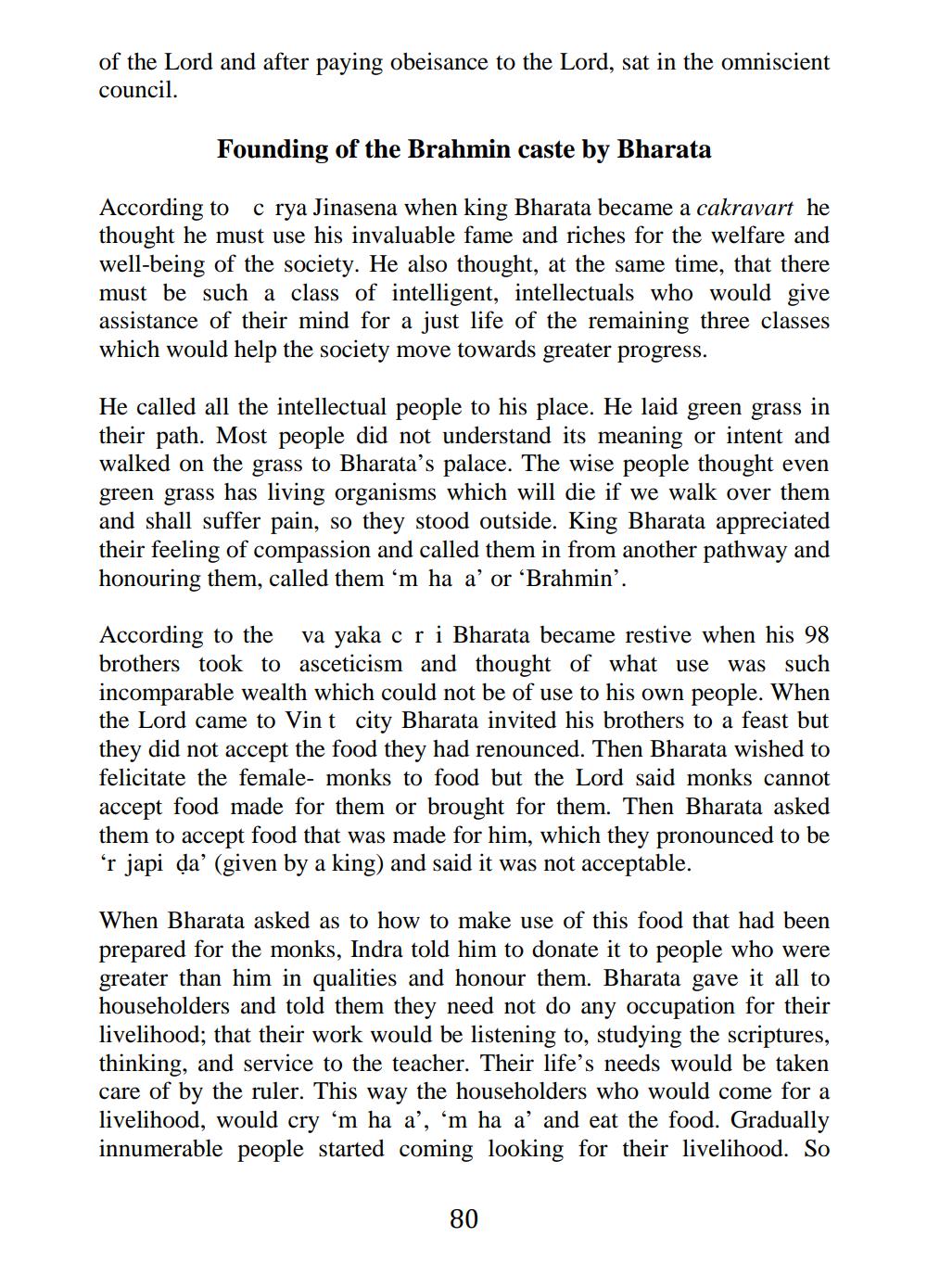________________
of the Lord and after paying obeisance to the Lord, sat in the omniscient council.
Founding of the Brahmin caste by Bharata
According to c rya Jinasena when king Bharata became a cakravart he thought he must use his invaluable fame and riches for the welfare and well-being of the society. He also thought, at the same time, that there must be such a class of intelligent, intellectuals who would give assistance of their mind for a just life of the remaining three classes which would help the society move towards greater progress.
He called all the intellectual people to his place. He laid green grass in their path. Most people did not understand its meaning or intent and walked on the grass to Bharata's palace. The wise people thought even green grass has living organisms which will die if we walk over them and shall suffer pain, so they stood outside. King Bharata appreciated their feeling of compassion and called them in from another pathway and honouring them, called them ‘m ha a' or 'Brahmin'.
According to the va yaka c r i Bharata became restive when his 98 brothers took to asceticism and thought of what use was such incomparable wealth which could not be of use to his own people. When the Lord came to Vint city Bharata invited his brothers to a feast but they did not accept the food they had renounced. Then Bharata wished to felicitate the female- monks to food but the Lord said monks cannot accept food made for them or brought for them. Then Bharata asked them to accept food that was made for him, which they pronounced to be ‘r japi da' (given by a king) and said it was not acceptable.
When Bharata asked as to how to make use of this food that had been prepared for the monks, Indra told him to donate it to people who were greater than him in qualities and honour them. Bharata gave it all to householders and told them they need not do any occupation for their livelihood; that their work would be listening to, studying the scriptures, thinking, and service to the teacher. Their life's needs would be taken care of by the ruler. This way the householders who would come for a livelihood, would cry ‘m ha a', 'm ha a' and eat the food. Gradually innumerable people started coming looking for their livelihood. So
80




